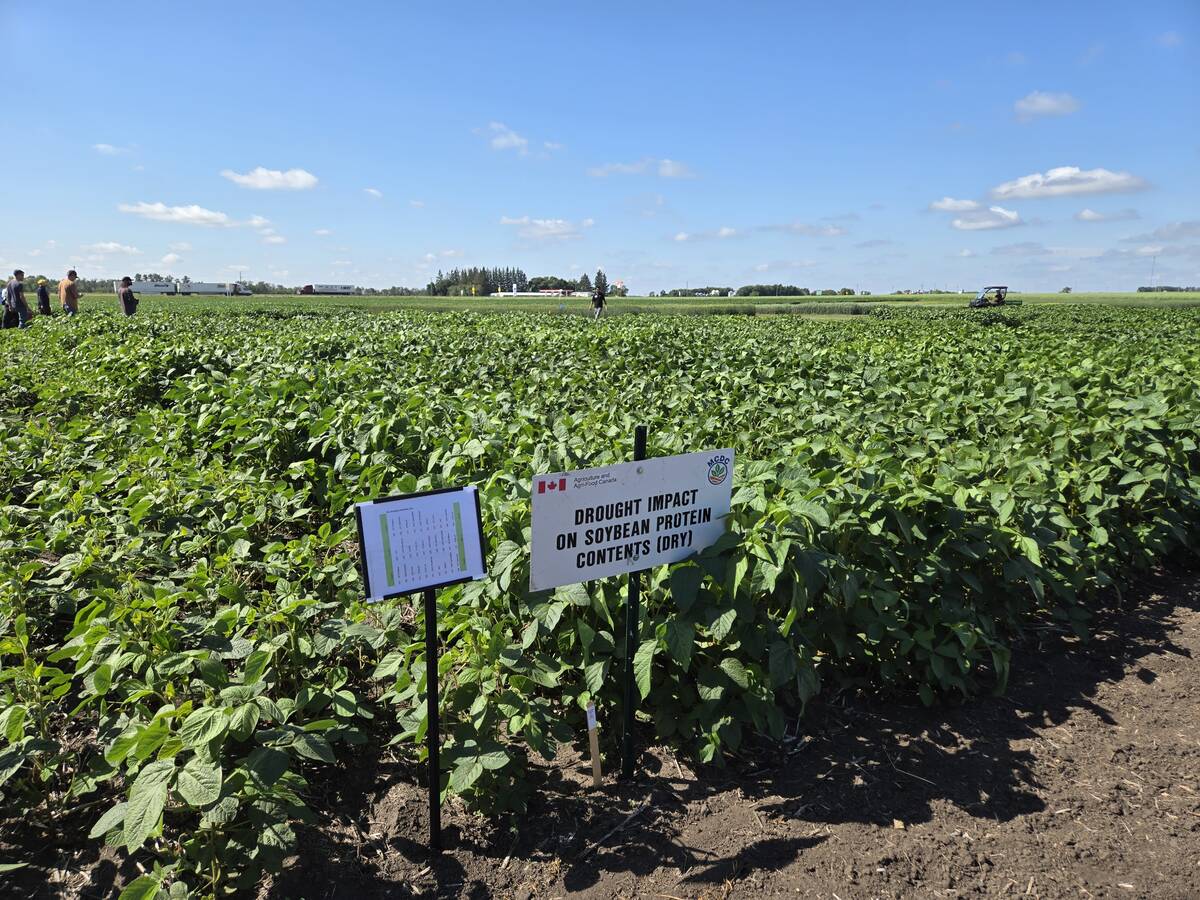AS THE recession grinds on, it’s tempting to focus too much on immediate survival and pay too little attention to longer term consumer trends.
In agriculture, at least on the crops side, the situation is different than most industries. Markets are reasonably strong and prospects appear bright.
Still, there are important trends we ignore at our peril.
Challenges in the livestock sectors, made worse by the recession, are rooted in deeper causes. They will require more pressing actions by industry and government to lift them from their present state.
Read Also

Carberry field day looks for agriculture solutions
Manitoba farmers explored research solutions for resilient crops, perpetual agronomic issues and new kinds of agricultural products at a field day at the Manitoba Crop Diversification Centre in Carberry on Aug. 6.
But in grains, oilseeds and pulses, where it appears another strong year is in the offing for those who bring in a crop, farmers are wise to keep an eye on the more distant horizon. They can position themselves now to meet future opportunities evolving from consumer trends.
On the issue of food safety, a top concern among consumers, farmers can take steps to protect existing markets. They can prepare to provide food traceability, to put a personal stamp of accountability on their products.
Recession or not, the issue promises to remain key, and consumers have said they are willing to pay more for traceability. Whether this is true in practice is of course another chapter.
Environmental sustainability is another factor that rates high among consumers. Sustainability means different things to different people, but measures such as waterway protection, zero-till, carbon sequestration, humane animal treatment, wildlife protection and building healthy soils will continue to be consumer priorities that farmers must consider.
Organic farming also has a role to play in the long-term. Premium prices might have been lost in many areas for the short-term as consumers tighten their belts, but profits are seldom the main reason that producers get into organic farming.
Lower input costs, perceived environmental benefits and finding ways to keep smaller farms operational all play roles. Some consumers also see value in these reasons and that is likely to continue.
The desire for more healthful foods is likely to come out of the recession strong. Pulse crops have been shown to have healthful properties in several studies.
As well, a broad range of crops could make gains as access to raw, farm fresh ingredients and whole foods becomes a consumer priority.
A recent report by the Canadian Agri-Food Policy Institute out of Ottawa reinforces this vision. It calls on the government and industry to co-ordinate agriculture and health policies.
The plan would focus on providing healthy food and increasing public awareness of healthier diets. Crucially, it also recommends innovation through research.
Traceability, improving supply and demand for more nutritious foods and better nutrition labels are also key components of the plan.
While farmers cannot control consumers’ desires, they have proven to be inventive in finding ways to capitalize on changing markets.
Help must be in place to spark innovation and business incentives must exist so farmers will be able to continue to make a living.














